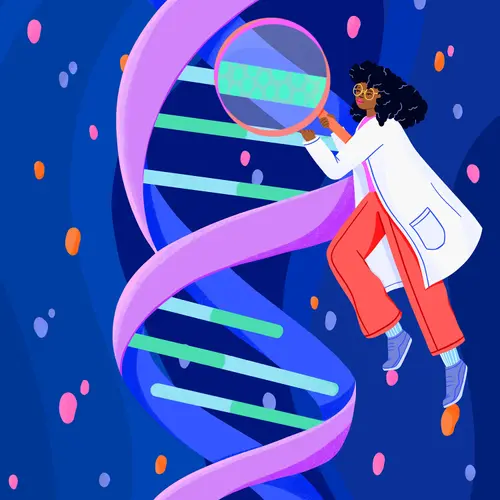Alcoholic myopathy is a muscle condition that can affect people with alcoholism or binge drinkers.
What Is Myopathy?
Myopathy is a general term for diseases that affect your muscles. The muscle fibers don’t work properly, which leads to muscle weakness and other symptoms. Some myopathy is inherited and present at birth. Other forms develop later in life from autoimmune disease, metabolic disease, or other causes.
What Is Alcoholic Myopathy?
Alcoholic myopathy is a condition that causes loss of function and strength in your skeletal muscles in response to long-term or heavy drinking. It can come on suddenly after binge drinking or can happen over time after regular alcohol use.
Alcoholic myopathy happens in about one-third of people who have alcoholism. It’s more common in people who have other alcohol-related diseases like liver cirrhosis.
What Causes Alcoholic Myopathy?
There are two types of alcoholic myopathy: acute and chronic.
Acute alcoholic myopathy. This type happens after binge drinking 4 to 5 alcoholic drinks that cause a blood alcohol level of 0.08 grams per deciliter or more. It can lead to a potentially life-threatening condition called rhabdomyolysis, in which alcohol causes muscle tissue to break down and release into your blood.
Rhabdomyolysis can lead to kidney failure and kidney dialysis, a treatment using machines that filter your blood for your kidneys.
Chronic alcoholic myopathy. This type of muscle condition is linked to a lifetime of drinking high amounts of alcohol. Over time, too much alcohol leads to tissue damage and deficiencies in B vitamins, iron, zinc, potassium, and vitamin D. This causes problems converting protein into muscle and repairing muscle.
Alcohol also causes oxidative stress. This happens because it makes large amounts of free radicals that cause tissue damage and lower the natural compounds that normally protect you from this damage.
The excess free radicals also interfere with activities in your cells like glycogen and lipid storage. These are forms of energy your muscles use during exercise. Improper energy storage can cause problems with muscle contractions, leading to weakness.
What Are Alcoholic Myopathy Symptoms?
Alcoholic myopathy symptoms include:
- Muscle pain
- Cramping
- Twitching
- Muscle tightness
- Dark urine
- Sensitivity to heat
- Loss of muscle mass
Alcoholic myopathy often affects the muscles of the pelvis and shoulders. Some people have trouble with daily tasks and simple movements like standing or walking.
What Are the Complications of Alcoholic Myopathy?
Alcoholic myopathy can lead to damage to your heart muscle, or cardiomyopathy. This disease makes it difficult for your heart to pump blood through your body. This can lead to:
- Breathing problems
- Stroke
- Heart attack
- Heart failure
- Irregular heartbeat
Too much alcohol can also lead to sudden kidney failure and not enough mineral salts.
What Is the Treatment for Alcoholic Myopathy?
The best way to cure alcoholic myopathy is to stop drinking alcohol. The condition will usually go away after a few days or within 2 weeks of a binge drinking episode.
If you have alcohol use disorder, this can be difficult. You might have cravings and withdrawal symptoms, so a rehab treatment program is important.
Other treatments include:
- Physical therapy
- Aerobic exercise
- Strength training
- Vitamins and electrolytes
- Behavioral therapy and counseling
If your heart muscle is affected, you might need medications and other treatments like:
- A low salt diet
- Beta-blocker medications
- Angiotensin-converting enzyme inhibitors, or ACE inhibitors
- Diuretics
Some studies suggest ghrelin injections might help you keep lean muscle mass. Ghrelin is often called the hunger hormone, and it can indirectly lead to muscle growth because it causes you to eat more food. Other studies show that drugs that block a protein called myostatin in your muscles might also stop muscle loss. More research is needed for these treatments, though.
How Long Do Alcohol Myopathy Effects Last?
It can take longer to recover muscle strength and movement in chronic alcoholic myopathy, but it can be reversed. About 85% of people recover within 2 to 12 months of quitting all alcohol and are fully recovered within 5 years of sobriety.
In some cases, heart damage is severe and might not be reversible. This will lead to lifelong treatment.

